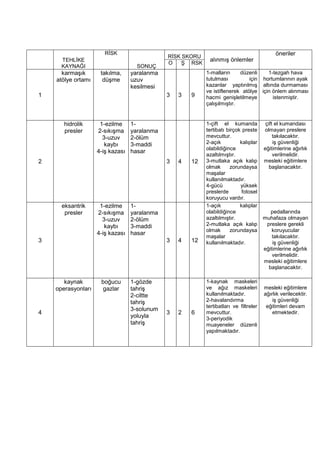Trump's Election Claim: Does Canada Need The US More?

Table of Contents
Economic Interdependence: Assessing Canada's Reliance on the US Market
Canada's economic relationship with the US is undeniably extensive. Understanding this interdependence is crucial to evaluating the impact of fluctuating political dynamics on the Canadian economy.
Trade Dependence:
Canada's reliance on the US as its largest trading partner is undeniable. Over 75% of Canadian exports head south, while a significant portion of imports originate from the US. This deep trade integration, fostered by agreements like the USMCA (United States-Mexico-Canada Agreement), creates both opportunities and vulnerabilities. Disruptions to this trade flow, caused by policy changes or political instability, can have severe consequences for the Canadian economy.
Investment Flows:
The US is a major investor in the Canadian economy, and vice versa. This reciprocal investment creates a complex web of economic connections. However, shifts in US investment policy or a decline in investor confidence due to political uncertainty can impact Canadian economic growth and stability. Protecting this flow of investment is critical for maintaining economic prosperity.
Energy Sector Dependence:
Canada's energy sector is heavily reliant on the US market. A significant portion of Canadian oil and gas exports are destined for US refineries and consumers. This dependence makes Canada vulnerable to shifts in US energy policy or trade disputes related to energy resources. Diversifying energy export markets is a key strategy to mitigate this risk.
- Specific examples of Canadian industries heavily reliant on the US market:
- Automotive manufacturing
- Lumber and forestry products
- Agriculture (e.g., grains, dairy)
- Mining and resource extraction
Security Cooperation: The Shared Border and Defense
The Canada-US relationship extends beyond economics, encompassing crucial aspects of security cooperation. The shared border and joint defense initiatives highlight the intricate nature of this partnership.
Border Security and Cooperation:
The world's longest undefended border presents unique challenges and opportunities. While cooperation on border security has generally been strong, shifts in US immigration and border policies can significantly impact Canada. Increased border scrutiny or changes in cross-border movement could disrupt trade, tourism, and daily life for communities along the border.
NORAD and Defense Cooperation:
The North American Aerospace Defense Command (NORAD) is a testament to the close defense cooperation between Canada and the US. This joint command plays a critical role in protecting North American airspace. Strained relations between the two countries could compromise NORAD's effectiveness and jeopardize the security of both nations.
- Potential security concerns stemming from shifts in US foreign policy:
- Increased military activity near the Canadian border
- Changes in intelligence sharing arrangements
- Reduced cooperation on cybersecurity threats
Political and Diplomatic Ties: Navigating the Shifting Landscape
The relationship between Canada and the US is constantly evolving, influenced by shifts in US administrations and global events.
Shifting Political Dynamics:
Changes in the US administration inevitably affect Canada's foreign policy. Different US presidents bring distinct priorities and approaches to the bilateral relationship, requiring Canada to adapt its strategies accordingly. This necessitates flexibility and proactive diplomacy.
Diversifying Relationships:
To reduce reliance on the US, Canada has actively pursued stronger ties with other countries. Trade deals with the European Union (CETA) and various Asian nations reflect this effort to diversify its economic and political partnerships.
Public Opinion and National Identity:
Trump's presidency and his approach to Canada-US relations significantly influenced Canadian public opinion. The experience reinforced the importance of independent foreign policy decision-making and a clear articulation of Canadian national interests.
- Examples of diplomatic challenges and successes:
- Navigating trade negotiations (USMCA)
- Addressing environmental issues (climate change)
- Managing disagreements on foreign policy
Exploring Alternatives: Reducing Canada's Dependence on the US
While the Canada-US relationship remains vital, exploring alternatives to mitigate over-reliance is crucial for long-term economic and political stability.
Strengthening Trade Diversification:
Canada needs to continue expanding trade relationships beyond the US. This involves actively seeking new trade agreements and fostering stronger economic ties with diverse partners worldwide.
Investing in Domestic Industries:
Investing in Canadian innovation and domestic industries can reduce reliance on US investment. This approach strengthens the Canadian economy and creates more resilient economic sectors less vulnerable to external shocks.
Energy Security Strategies:
Diversifying energy markets, including exploring new export routes and developing alternative energy sources, is essential to reduce vulnerability to US energy policy fluctuations.
- Specific policy recommendations and initiatives:
- Increased investment in renewable energy technologies
- Development of new pipeline infrastructure to access diverse markets
- Support for innovation and technology in key industries
Conclusion
The Canada-US relationship is complex and multifaceted. While economic and security interdependence are undeniable, Trump's presidency highlighted the need for Canada to strengthen its resilience and diversify its relationships. Although the economic ties remain significant, Canada’s efforts to diversify its trade and strengthen its relationships with other nations demonstrate a proactive approach to managing its future. Trump's actions, while challenging, underscored the importance of continuing these diversification efforts. The future of Canada US relations depends on maintaining a strong, yet diversified, partnership. We encourage further research into the various aspects of Canada US relations, specifically examining the implications of new trade agreements and evolving defense strategies for the long-term stability and prosperity of both nations.

Featured Posts
-
 The Undervalued Asset How Middle Managers Drive Company Performance And Employee Satisfaction
Apr 30, 2025
The Undervalued Asset How Middle Managers Drive Company Performance And Employee Satisfaction
Apr 30, 2025 -
 South Africa Ramaphosa Approves Commission On Apartheid Atrocities
Apr 30, 2025
South Africa Ramaphosa Approves Commission On Apartheid Atrocities
Apr 30, 2025 -
 Breaking Chilean Migrants Indicted In Series Of High Profile Nfl Heists
Apr 30, 2025
Breaking Chilean Migrants Indicted In Series Of High Profile Nfl Heists
Apr 30, 2025 -
 Goeruenmez Tehlike Nevsehir De Yueksekten Duesme Kazasi Detaylari
Apr 30, 2025
Goeruenmez Tehlike Nevsehir De Yueksekten Duesme Kazasi Detaylari
Apr 30, 2025 -
 Time Gala Argamani Advocates For The Release Of Israeli Hostages
Apr 30, 2025
Time Gala Argamani Advocates For The Release Of Israeli Hostages
Apr 30, 2025
